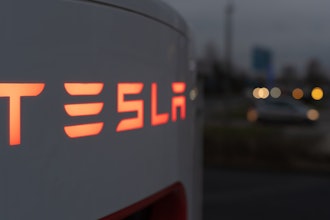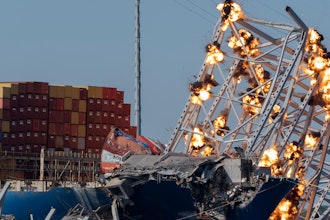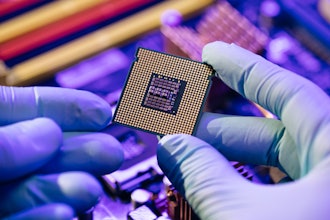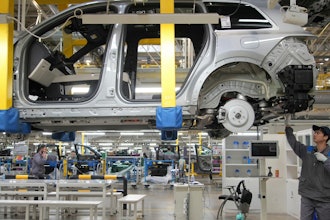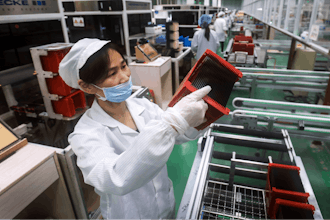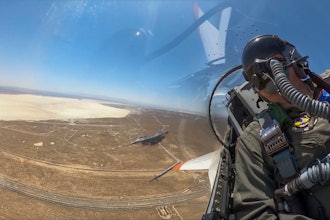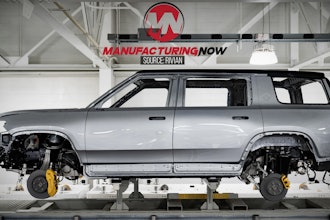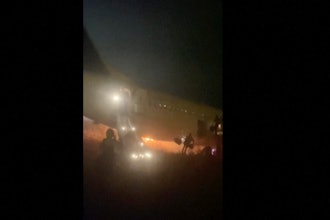TOKYO (AP) -- A Japanese nuclear plant won preliminary approval Wednesday for meeting stringent post-Fukushima safety requirements, clearing a major hurdle toward becoming the first to restart under the tighter rules.
The Nuclear Regulation Authority accepted a 418-page report that found that design upgrades and safety improvements at Kyushu Electric Power Co.'s two reactors at the Sendai Nuclear Power Station have complied with the requirements introduced last July.
The regulators said the plant is now deemed capable of avoiding severe accidents such as the Fukushima Dai-ichi meltdowns in an equally serious situation. All of Japan's 48 remaining reactors are offline for safety checks and repairs since the 2011 earthquake and tsunami hit Fukushima Dai-ichi, causing multiple meltdowns.
Five regulatory commissioners unanimously agreed to move to a next step, allowing the authority to hold a 30-day technical public comment period beginning Thursday until Aug. 15 before a final approval.
Authority's chairman Shunichi Tanaka called it "a major step" and that the inspection for the Sendai plant incorporated lessons from Fukushima, particularly focusing on ways to build layers of protection in case of serious incidents in a country prone to natural disasters, including volcanic activity, eathquakes, tsunami and typhoon.
"Previously, safety inspections were merely design-based, but this time we focused on how to prevent severe accidents," he told a weekly commissioners' meeting, which was repeatedly disrupted with anti-nuclear protesters heckling from the floor.
Tanaka said multi-layer steps are in place to protect the reactor core and its containment chamber from damage, while reducing radiation leaks by adding filtered vents. The operator also upgraded the equipment's seismic resistance and tripled the tsunami seawall to 15 meters (50 feet). Other risks such as terrorist attacks, airplane strikes and violent volcanic explosions also have been taken into consideration.
The Sendai plant is surrounded by at least five active volcanos. Commissioner Kunihiko Shimazaki, a seismologist, said it's impossible to accurately predict eruptions, although the current assessment suggests a catastrophic eruption is extremely unlikely.
Prime Minister Shinzo Abe is pushing to bring at least some of Japan's 48 reactors back online, saying a prolonged shutdown hurts Japan's economy. Two reactors in western Japan had been briefly reactivated to avoid summertime power crunch, but have been since switched off pending safety checks.
"I take this as a step forward," Abe told reporters. "When there is a final decision that the plant is safe, we will proceed with a plan to restart the reactors, while trying to gain understanding from local communities and the residents."
It will still take a few more months to get the No. 1 and No. 2 reactors at Sendai Nuclear Power Station online, officials said. The operator has to clear final steps such as on-site checks, followed by obtaining local government consent.
Though public opposition over restarts exceeds support, Abe's government has been calling for restarts, reversing a nuclear phase-out policy adopted by the previous government. The safety approval for the Sendai plant and its expected restart marks a big boost for the nuclear industry.
The Sendai plant is 1,000 kilometers (600 miles) southwest of Tokyo and on the southern tip of Japan's Kyushu island. Regulators in March placed the plant, which operates two of 19 reactors nationwide that are undergoing safety checks, on a fast-track for safety approval, largely because the operator was quick to raise the bar on tsunami and earthquake safety.
Regulators will now shift work to the screening of the remaining 17 reactors that applied for inspection.









